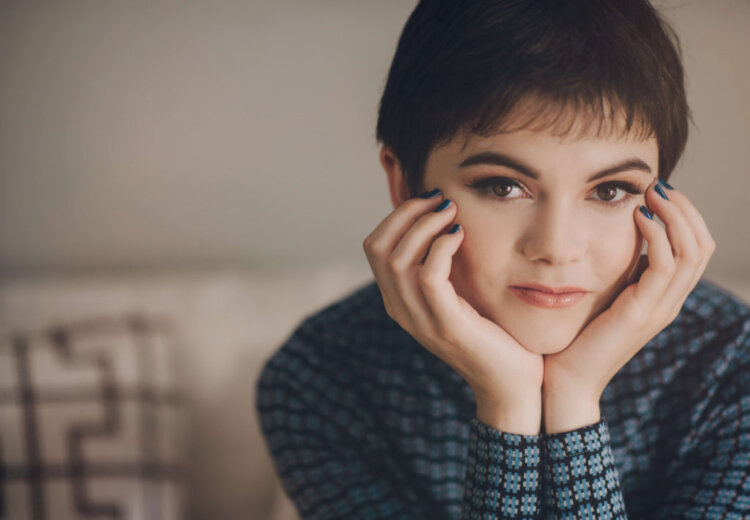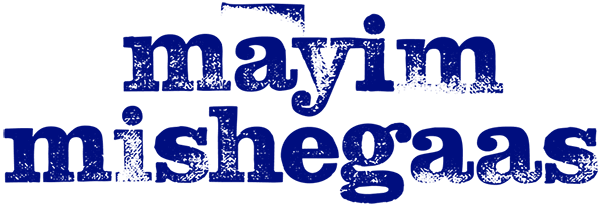
Photo Credit: Renee Bowen
What is “social good”? How can young people make a difference? In this GrokNation interview, Mayim asks PhilanthroParties author Lulu Cerone about social activism and how young people can turn their celebrations into acts of philanthropy.
Mayim Bialik: Tell our readers what your book is about!
Lulu Cerone: My book is called PhilanthroParties, and it’s essentially a socially-conscious party-planning book. It’s a DIY monthly party-planning guide aimed at encouraging young people to host parties that are philanthropically-motivated. I give three examples of parties for each month complete with fun and inexpensive activities and recipes. I have been doing PhilanthroParties for the past 7 years and I wanted to hopefully get other people involved in integrating social good into their social lives.
MB: What exactly is “social good”? Why should people (especially young people) incorporate social good into their social lives/parties?
LC: I use the term social good in place of social activism sometimes, because it feels like it has a broader reach, even though it’s basically the same thing. Social activism is often defined as creating change in society through confrontation and protest. I believe that many of the issues we face today require action of this nature. But in my book, I also include many ideas that create positive change through simple acts of kindness. “Social good” sounds like it includes this kind of engagement as well. I’m actually not even sure it’s an official term, but it works for me.
I feel very strongly that if my generation is to address the challenges we will inherit, we need to change how we give, and change how we serve. Right now, young people are limited in ways to participate in social change. We’re too young to volunteer for most organizations. And the community service opportunities available to us in school or in places of worship are isolated events – there will be a single community service day or a class project that ends after a few weeks. So I asked myself, “What if kids had tools to make generosity and service an integrated, ongoing part of our lives?” That’s the question that motivated my book. I believe that if young people start integrating service into our routine, starting with our social lives, then generosity can become second nature. Service can become a habit that continues into adulthood. If this happens, we have a greater chance of solving the problems we will face in our lifetime. My book is a small way of creating this shift in our mindset by offering tools to get kids on a path toward a lifetime of meaningful, productive service. I have seen how these simple PhilanthroParties have transformed my community. I have seen my LemonAID Warriors grow up alongside me and I am confident that they will be powerful effective leaders and agents of change in the future.
MB: That’s amazing! So, tell us about your first PhilanthroParty, and the LemonAID Warriors – you were ten years old?!
LC: I was! The earthquake in Haiti happened in 2010 and I was ten years old at the time. Learning about it was really the first time I was exposed to a global tragedy on that scale and I immediately wanted to help. What I did was I gathered a group of my friends and we decided to host a boys vs girls lemonade stand competition with my entire fifth grade class. It was so much fun and we ended up raising around $4000 in two weeks. I got the idea to start “LemonAID Warriors,” to spread the message that its really easy to integrate activism into your social life and you don’t have to be older to do it, you can start really young.
MB: So where did you hold your LemonAID Wars challenges?
LC: We held them at soccer tryouts, little league tryouts, local parks, in front of some people’s houses, where there was a lot of foot traffic. My whole entire school got behind it. And it was a really successful event.
MB: You’re very articulate, you’re very committed, and obviously very motivated. I sounded a lot like you when I was seventeen; I was very interested in social justice things, and I was kind of mopey and cynical and I wore all black and I listened to dark music. What formed my identity when I was your age was a lot of existential philosophy and music and a feminist teen magazine called “Sassy” which was published by Ms. Magazine. What are the things that have made you you?
LC: That is a really great question, actually, I don’t know if I’ve really been asked that before. I’ve definitely had my fair share of wearing dark clothes and listening to dark music. One thing that’s been very influential in my life has been punk rock. That’s definitely shaped the way I’ve approached things sort of unconsciously. There are things in the punk scene that I am not a fan of, but the movement challenges authority, it questions things, and it doesn’t take no for an answer, and there’s a sort of raw energy to punk rock that’s been really inspiring to me to go after what I want and not worry about expectations that I may face because I’m a girl and because I’m young.
It’s important to go after what you want, even if you’re fourteen and no one believes you can write a book. I kept going after this and eventually I found a publisher who was interested in my ideas.
MB: What are the top five favorite songs that you love or that inspire you?
LC:
- “Double Dare Ya” – Bikini Kill. Bikini Kill introduced me to feminism in the 8th grade and their girl-power battle cry “Double Dare Ya” was one of my favorite songs. Bikini Kill’s punk-rock politics, unbridled expression, and “utterly fed-up with the patriarchy” attitude gave my inner turmoil a voice and perfectly articulated the rage that I did not yet have the words to express.
- “Fairytale in the Supermarket” – The Raincoats. The Raincoats embody the DIY punk rock ethos that I’ve always admired. None of the band members really knew how to play their instruments, but the music that they created was honest and poetic and brims with infectious energy. “Fairytale in the Supermarket” makes me want to pick up a guitar and scream the truth.
- “Chinatown” – Girlpool. Girlpool started making music as teenagers in the LA music scene and I’ve always looked up to them. All of their songs are saturated with brutal and unapologetic emotion, and they find such beauty in vulnerability. “Chinatown” captures the uncertainty of adolescence and I always listen to it on repeat.
- “Fight the Power” – Public Enemy. The angry, subversive energy and honesty that defines punk rock is also at the root of hip-hop. Public Enemy’s “Fight the Power” is a mobilizing anthem with a message that continues to resonate today.
- “Across the Universe” (Cover) – David Bowie. The Beatles’ beautiful, lyrical “Across the Universe” is probably my favorite song of all time. I’ve recently discovered the David Bowie cover and it literally makes me break down in tears. My first exposure to rock and roll was through The Beatles and David Bowie, and I’ll always be indebted to their art.
To order Lulu Cerrone’s book, PhilanthroParties, click here.




 Read More From Mayim
Read More From Mayim
Grok Nation Comment Policy
We welcome thoughtful, grokky comments—keep your negativity and spam to yourself. Please read our Comment Policy before commenting.